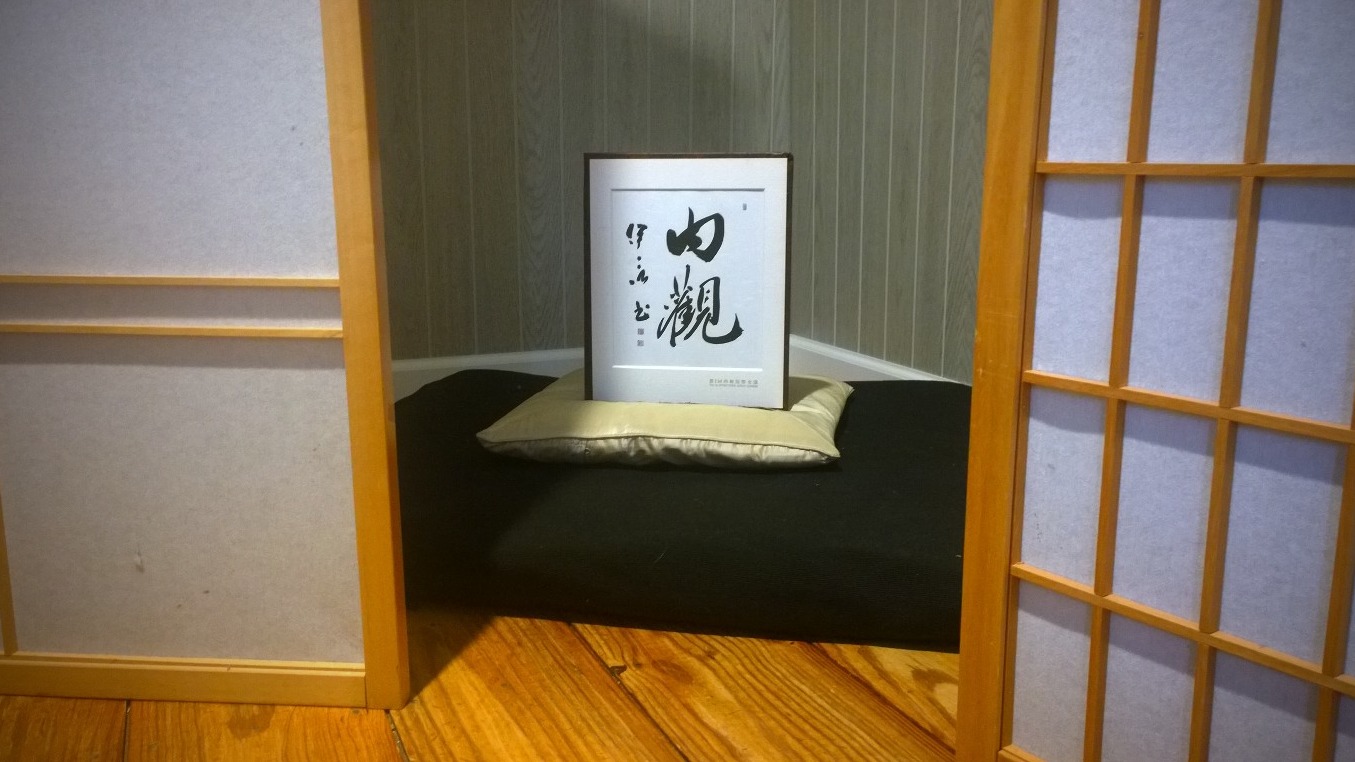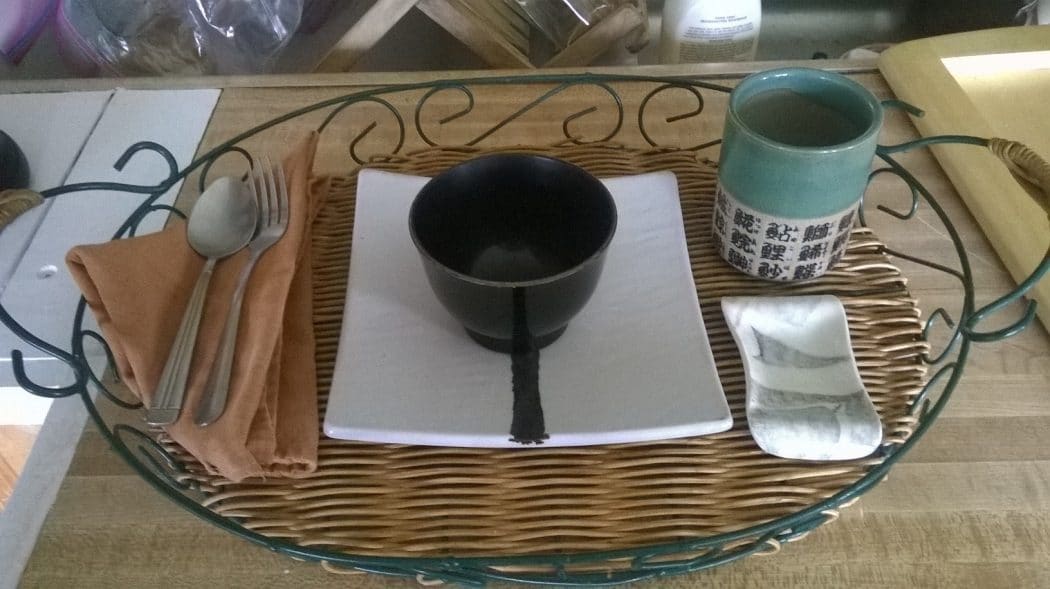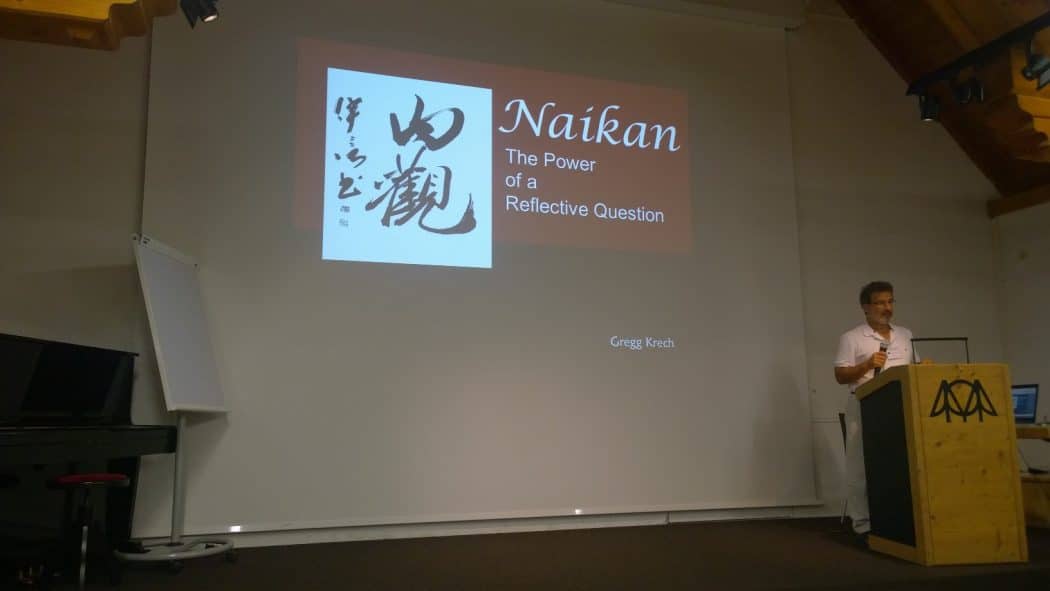Naikan as a Tool for Solving Conflicts and Achieving Reconciliation
by Linda Anderson Krech
Naikan can be a powerful tool for reconciliation. If I take it out and use it in a focused and wholehearted way, it can be transformative, revealing missing pieces that may dramatically change what I see and understand.
Many years ago I, along with a handful of other family members, helped to start a center for those with serious mental illness. Fueled by our passionate desire to help our loved ones and our great disappointment in the existing mental health system, we secured funds, found a space, hired a director and began preparing for the program to open its doors in approximately two months. I was hired by the director to be his assistant. It was a dream come true.
However, it didn’t take long before tensions began to grow. I was disappointed in the director’s job performance. I thought he was coming in a little too late and leaving a little too early. I thought he was lacking in enthusiasm and initiative, given all the preparations that were needed to launch a successful program. While I was treating this opportunity like a dream come true, he was treating it like a job. But we did succeed in pulling the program together and opening on time, with a long waiting list of those who wanted to participate. Needless to say, this was a very exciting time for me.
But the director did not show up on that first active Thursday of the program, choosing instead to attend to non-urgent personal business. I felt outraged. The next day I told him exactly what I thought, in no uncertain terms. Given that he was MY boss, this was a confusing and unsettling turn of events. Our encounter was very disruptive and I wondered where it would lead. That night, not knowing what else to do, I did Naikan reflection on the director. Not feeling like it, I took an hour and reflected on these three simple questions.
What had I received from him?
What had I given to him?
What troubles and difficulties had I caused him?
What rose to the top of my awareness was all the work that he HAD done to move us forward with this beloved project — things that I would have had trouble doing and didn’t enjoy doing, things that enabled us to open our doors. And I recognized specific troubles that accompanied my being on his staff, not the least of which was my ongoing scrutiny of his performance. Before work the next day, I bought him some flowers and left them with a note on his desk. The note said something like “Thank you for all you’ve done to get us to this point. I hope we can work together to make this an extraordinary center.”
When I saw him hours later, he could not speak. He was very emotional and indicated that he would talk to me later. And then I found a note on my desk that said, “That was one of the kindest gifts I have ever received.” My reflection and my subsequent gesture helped us to reconcile and to move forward. Naikan helped me to redirect my attention and challenge the story I had created. It helped me to understand what it was like for him to work with me, and to acknowledge the contributions he had been making all along. It gave us a way out of the tangle we got into.
Naikan’s influence is softening. It opens the heart and helps us to mind our own business. It allows us to get unstuck. It helps us to strengthen our partnerships. What could have been the beginning of the end, instead became the beginning of a better relationship for us. I got busy doing my job rather than monitoring his. He got busy making extra room in his life for the huge demands of his position. Maybe we would have found our way there without Naikan, but I wouldn’t bet on it. As it turned out, we became a great team and the program was a phenomenal success under his leadership for over 25 years.
I invite you to consider using Naikan when you are caught up in conflict with others. You may not want to reflect on these questions if you are angry, based on your current understanding of the situation. When we’re angry, self-righteous and judgmental, it’s hard to focus on these questions, but they can help us to make wiser decisions, ones that we will not regret, decisions that are more fair, openhearted, and inclusive. Please let me know if you use Naikan to deal with an interpersonal conflict. I’d love to hear about your experience. (linda@todoinstitute.org)
Linda Anderson Krech, MSW, has been Program Director of the ToDo Institute since 1998. She facilitates the program, Solving the Food Koan, and is a frequent contributor to Thirty Thousand Days.
Please note that our annual Gratitude, Grace & A Month of Self-Reflection will begin on Nov. 14, 2022. The program, based on Naikan, is led by Gregg Krech, one of the most experienced Naikan practitioners in North America, and offer of five books about Japanese Psychology. Register Here.
Tags: All Members









